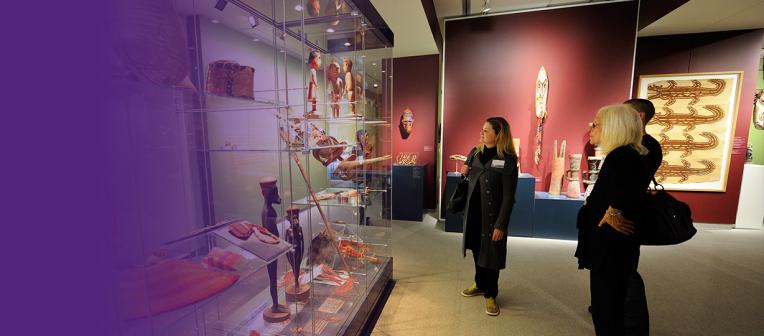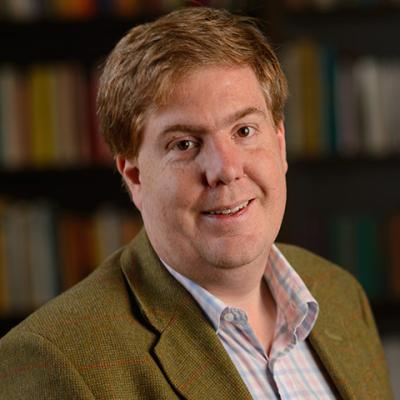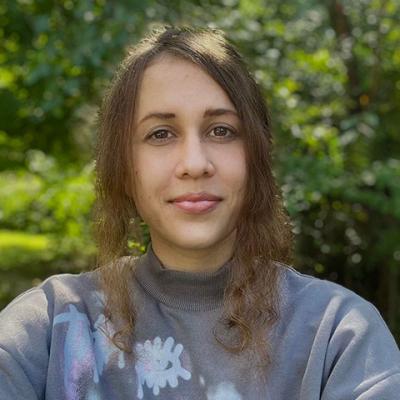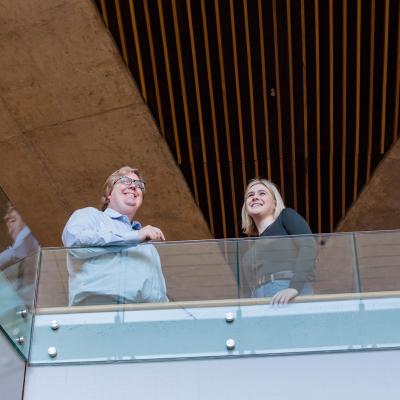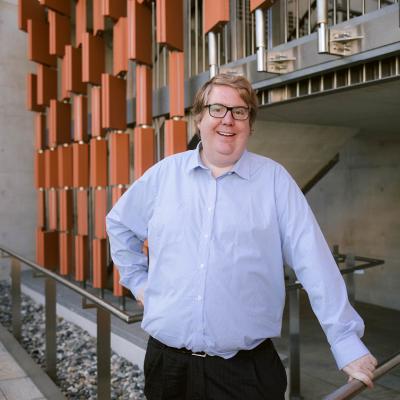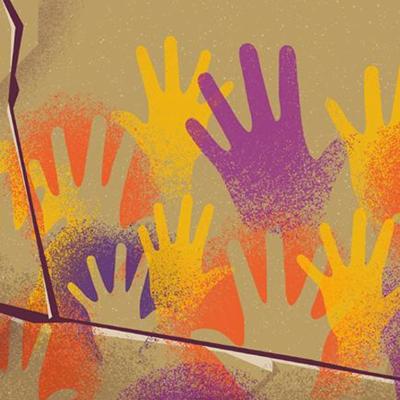Asking for a definition of humanities can lead to a lot of different answers, but here at UQ, we define humanities as a discipline quite simply: it’s the study of products of human culture.
Ok, that’s nice, you may be thinking, but what exactly are the products of human culture? And what does studying them involve? Also, more to the point, what can I do with a humanities degree?
Sit tight, because we’re about to explain all that in detail. As for what you could be doing if you choose to study humanities at UQ, here’s a little snapshot:
- investigating the differences between cultures and communities around the world and over time
- considering the ways in which art and literature is made and received
- revealing the undercurrents that have shaped history
- developing solid research skills that enable you to analyse social issues and convey practical steps to solve them.
Intrigued yet? Let’s take a closer look at what to do with a humanities degree and bust some myths along the way with a little help from UQ Bachelor of Advanced Humanities (Honours) graduates and teachers.
Is a humanities degree worth it?
We’re going to get this out of the way first – based on what you’ve read on the internet or from word of mouth, you may be wondering ‘are humanities degrees useless?’. We’re here to tell you that they are, in fact, extremely useful and worthwhile. Here’s why:
- the program is interdisciplinary, meaning you get to work across different fields, developing a breadth of knowledge in several areas
- it enhances your verbal and written communications skills – skills that ALL employers are looking for
- there’s a strong focus on group work and collaboration, which are also very important to your future employability and life in general
- there are plenty of opportunities to gain industry experience including projects, placements and Work Integrated Learning.
On top of this, let’s break down some of the more detailed benefits of a humanities degree.
Did you know?
The humanities and social sciences supply two-thirds of Australia’s workforce.
– The Australasian Council of Deans of Arts, Social Sciences and Humanities
Preparing you for any future
Many changes have reshaped the nature of work:
- new careers and ways of working are developing as new technology is introduced
- the rate of globalisation continues to increase.
So, how do you respond to that?
Course Convener of UQ’s Advanced Humanities (Honours) Program, Professor Alastair Blanshard believes it’s by equipping students with a range of skills that will complement any industry.
“The answer is by having skills that can be applied to different kinds of fields,” he says.
“That’s what we’ve been trying to do in the humanities degree – give students the ability to research, to write, to express ideas, to be persuasive, to know how to marshal arguments, to be able to communicate, but also other skills as well.”
As we mentioned above, a key component of UQ’s Bachelor of Advanced Humanities (Honours) is group work. Not only are students constantly placed in groups for discussions and debates during tutorials, but they also participate in bonding activities in orientation camp in their first year and organise a symposium together in their second year. And this is just the start.
“There is a deliberate cohort focus to the program,” says Alastair.
“It reflects well on the nature of the world of work, because no one ever works alone – you’re always part of a team.”
Alastair explains that this is part of what makes humanities graduates so employable.
“These different kinds of social teamwork skills allow you to transition from career to career. They’re so vital to have.”
Skills and attributes gained from a humanities degree
Hannah, a UQ Advanced Humanities graduate, believes the program has equipped her with skills in two key areas: critical thinking and teamwork.
“One of the things I learnt that is not talked about much is just the ability to be proactive – to seek out your own ideas and conclusions, to be the first person to speak in the group projects, and to not shy away from interacting with people from a different industry or who are a different age to you."
Hannah also notes that the program encourages respectful debate, and the nature of the group work means you need to learn how to cooperate with people who may have different opinions and perspectives to your own. She explains that this can have its advantages as it allows you to consider a topic from a variety of angles.
Even though humanities can sometimes get an unjustified bad rap for being embedded purely in theory, in Hannah’s experience, UQ’s Bachelor of Advanced Humanities (Honours) program has really helped her to apply the critical thinking she has developed in an academic context to practical, real-life situations through the work experience she has undertaken during her studies.
Did you know?
80% of Humanities, Culture and Social Sciences students were satisfied with their overall educational experience, compared with a 77% national average.
Humanities subjects with industry experience
At UQ, there are several humanities courses within the Bachelor of Advanced Humanities (Honours) program that focus on gaining industry experience. The fourth honours year in particular provides students with the opportunity to undertake a Work Integrated Learning course. Students can also apply for internships and industry projects throughout the program.
Both Hannah and Electra – another UQ Advanced Humanities graduate – took part in the IPLC Internship, which was one of the different industry experience projects provided in the third year of their Advanced Humanities program.
This internship took place in the collections of the Integrated Pathology Learning Centre on the UQ Herston campus. In the museum space, students worked towards creating a collaborative event that aimed to form cross-disciplinary connections between the humanities and medicine, and explore new solutions for future health humanities challenges.
“We curated something that draws from our knowledge of the humanities and medicine, and the broad theme of the whole project was ethics in the medical humanities,” Electra says.
“I think this is definitely one of those opportunities that makes you really think about how to apply theory into practice.”
UQ Bachelor of Advanced Humanities (Honours) graduate Jenny interned with Anglicare on their Reconciling Histories project in her third year of studies. As a summer research scholar, she delved into Aboriginal and Torres Strait Islander cultures, knowledge systems and histories.
“It’s a very cool opportunity to see in a practical sense how Indigenous knowledge is being preserved and how Indigenous culture is being respected outside of UQ and in a not-for-profit company,” says Jenny.
“It was kind of like your first exposure to having an industry contact, working with them and interviewing people.”
Jenny was able to transform what she had learnt during her studies about intercultural communication into an everyday working environment – an experience she found invaluable, especially for preparing her for her future career.
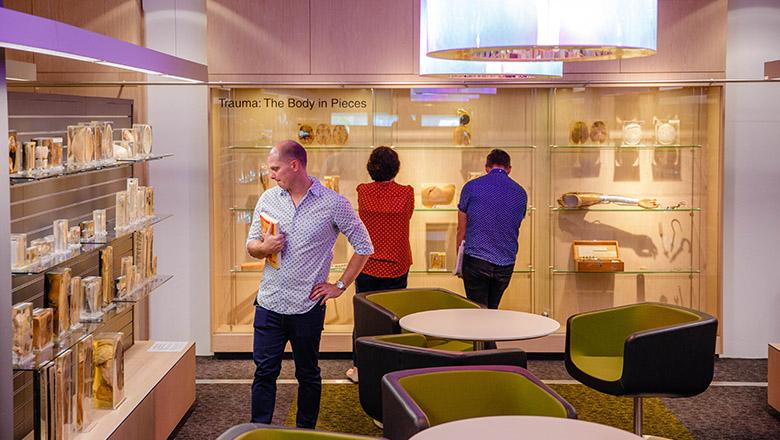
UQ’s Integrated Pathology Learning Centre helps to promote an understanding of health and disease.
What jobs can you get with a humanities degree?
A degree in humanities can take you in a myriad of directions and prepare you for a vast range of jobs. From the museum sector to the film industry and onto politics, humanities graduates have an invaluable skillset favoured by many employers.
Here are a few of the roles you could find yourself in after graduating with a humanities degree:
- academic or historical researcher
- sociologist
- diplomatic officer
- humanitarian services coordinator
- classics teacher
- music critic
- editor
- policy and advocacy adviser.
And here are the top 5 sectors in which humanities graduates find employment, according to the Humanities Horizons: Perspectives from Australia report:
- architectural, engineering and technical services
- education
- government administration
- creative and performing arts
- religious services.
Did you know?
62% of government senior executives and 66% of federal parliamentarians have a degree in the humanities.
Meet Jenny, a UQ Advanced Humanities graduate
Jenny graduated from UQ’s Advanced Humanities program in 2021 and shortly afterwards, went on to work as a human resources and payroll technological consultant for TechnologyOne Brisbane, Australia’s largest enterprise software company. Their software systems streamline and simplify business processes for customers.
Jenny explains that as an HRP consultant, she was dedicated to supporting clients achieve their business objectives with tailored solutions. One of her daily tasks involved helping clients manage the configuration of their system, so they could get the most out of their investment.
Though many people may not associate this type of career with the humanities, Jenny is quick to point out how her degree prepared her for this role.
“I think the biggest advantage of studying humanities is the interdisciplinary element of the actual cohort, because you are involved in a group of people who study in different fields, so you have very different disciplinary techniques that you are focusing on,” she says.
“When you bring all of these things into a room – those discussions, those learnings, and the different perspectives you gain from each other – the takeaways are very valuable.”
She also reveals that one of the crucial aspects from her degree that has greatly benefitted her work is the strong research and communication skills she developed from the diverse types of assessments and the group work – both essential elements in the program.
“Consulting can be very challenging and it exposes you to a lot of different areas and industries, so there’s a lot of people skills involved in the work,” Jenny says.
“In consulting, you have to think about what the bigger impact is of something, that on the surface, seems to be a very small change, and that’s where your critical thinking skills really come in handy.”
What type of student would enjoy humanities studies?
Still wondering if you’d enjoy a bachelor’s degree in humanities? Electra thinks it’s a program well-suited to students who value independence in their learning and those who have a thirst for knowledge across many areas.
“The discussion on interdisciplinarity was so interesting and was one of the reasons why I chose this course,” Electra says.
“Acknowledging that there is no one specific shape or theme of the course allows you to explore it in your own way, which is pretty cool.”
She also emphasises the breadth of topics covered in the program. With 9 majors to choose from, students can build the degree around their areas of interest.
Electra explains that the focus on research methodologies and defining which are suited to each discipline is another major drawcard.
“You gain knowledge about the processes that lead to good research and getting outcomes, then use the knowledge you've learned to become a culturally informed person,” she says.
"The more you know something, the better you can approach it.”
The bottom line? Humanities helps you see the bigger picture.
“You learn the layers underneath, and just living through society today with all this information will help you in whatever you want to try and do.”
More than a degree to get a job
Speaking of the bigger picture, Alastair shares one final insight into studying humanities while considering the global pandemic: it can help you find not only a fulfilling career, but also a fulfilling life.
“Even during isolation, I think the humanities helped to build a sort of mental resilience – that kind of rich interior life through occupying the mind,” he says.
“It gets you to think about the world in creative ways. It puts you onto some great literature, it teaches you how to visually analyse works so the world becomes alive to you with the humanities degree.”
“I think that what COVID taught us is actually that vocations are only part of the picture for a fulfilled life.”
Alastair goes on to explain that the most interesting and fulfilling jobs could be those that haven’t even been created yet, so why not take that leap of faith and pursue what you’re truly passionate about?
“I think pursuing your passion is really the way to be your best self.”
Us too, Alastair.
Discover UQ's Bachelor of Advanced Humanities (Honours)
This article has been updated since its original publish date to ensure accuracy of information. The views and opinions of the people featured in this article are true as of 16 November 2022.

